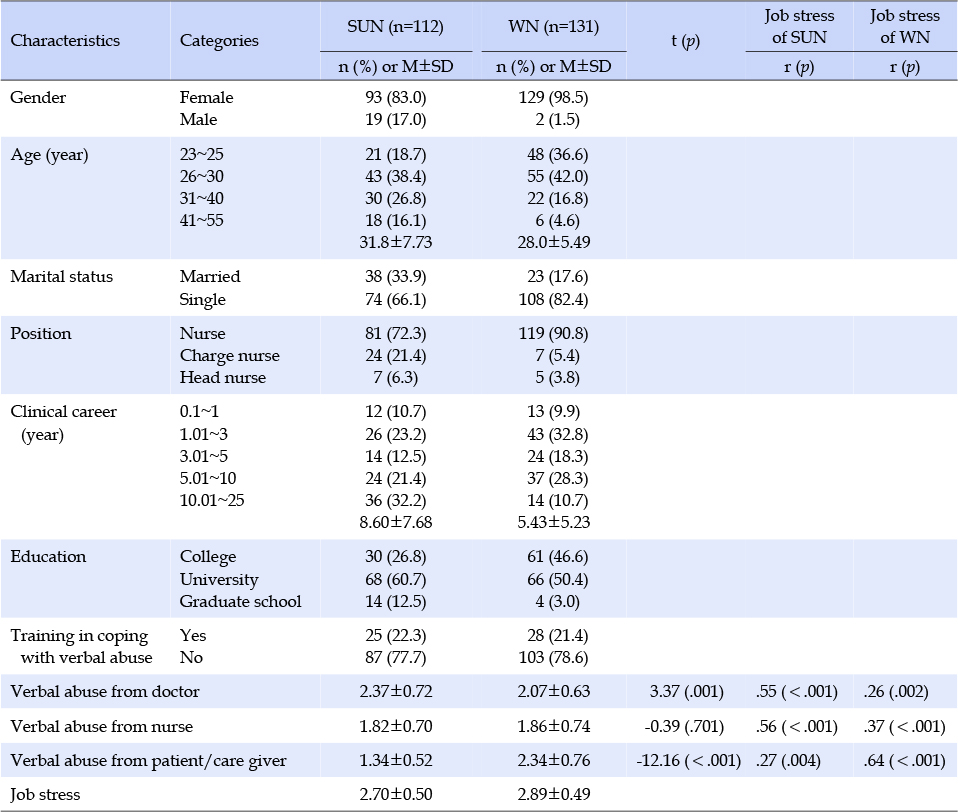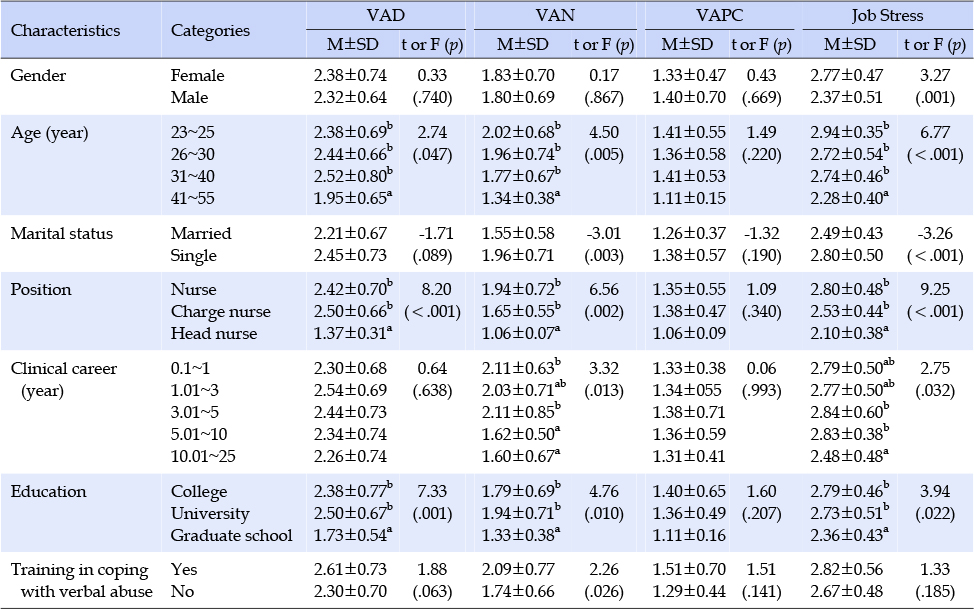1Gil Hospital, Gachon University, Korea.
2College of Nursing, Gachon University, Korea.
Copyright © 2017 Korean Academy of Nursing Administration
This is an open access article distributed under the terms of the Creative Commons Attribution Non-Commercial License (http://creativecommons.org/licenses/by-nc/3.0/), which permits unrestricted non-commercial use, distribution, and reproduction in any medium, provided the original work is properly cited.
This article is a revision of the first author's master's thesis from Gachon University.



SUN=Special unit nurses; WN=Ward nurses.
SUN=Special unit nurses; WN=Ward nurses.
a, b: Duncan's multiple comparisons; VAD=Verbal abuse from doctors; VAN=Verbal abuse from nurses; VAPC=Verbal abuse from patients and/or care-givers.
a, b, c: Duncan's multiple comparisons; VAD=Verbal abuse from doctors; VAN=Verbal abuse from nurses; VAPC=Verbal abuse from patients and/or care-givers.
*Dummy variables: gender (male=0), marital status (single=0), position (head nurse=0), education (graduate school=0), training in coping (no=0); †Dummy variables: marital status (single=0), training in coping (no=0).
SUN=Special unit nurses; WN=Ward nurses.
SUN=Special unit nurses; WN=Ward nurses.
a, b: Duncan's multiple comparisons; VAD=Verbal abuse from doctors; VAN=Verbal abuse from nurses; VAPC=Verbal abuse from patients and/or care-givers.
a, b, c: Duncan's multiple comparisons; VAD=Verbal abuse from doctors; VAN=Verbal abuse from nurses; VAPC=Verbal abuse from patients and/or care-givers.
*Dummy variables: gender (male=0), marital status (single=0), position (head nurse=0), education (graduate school=0), training in coping (no=0); †Dummy variables: marital status (single=0), training in coping (no=0).

